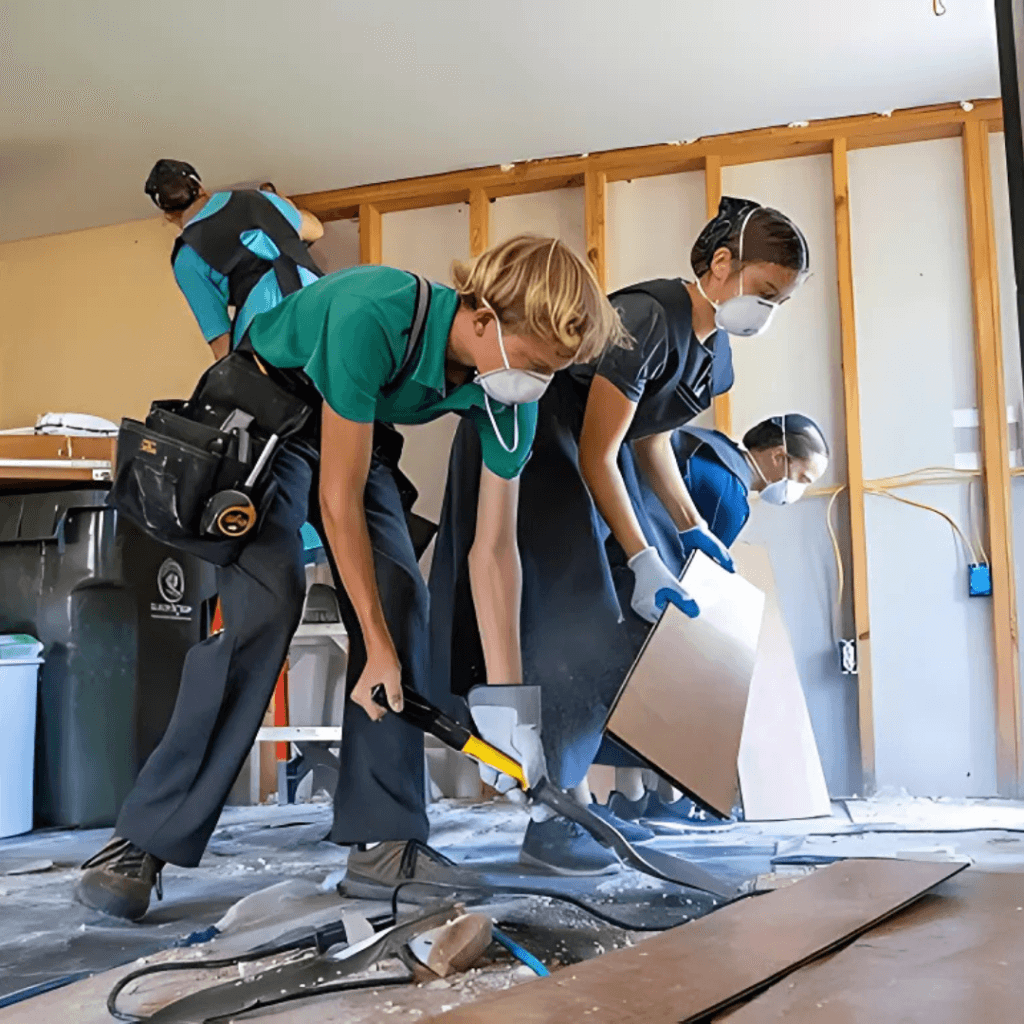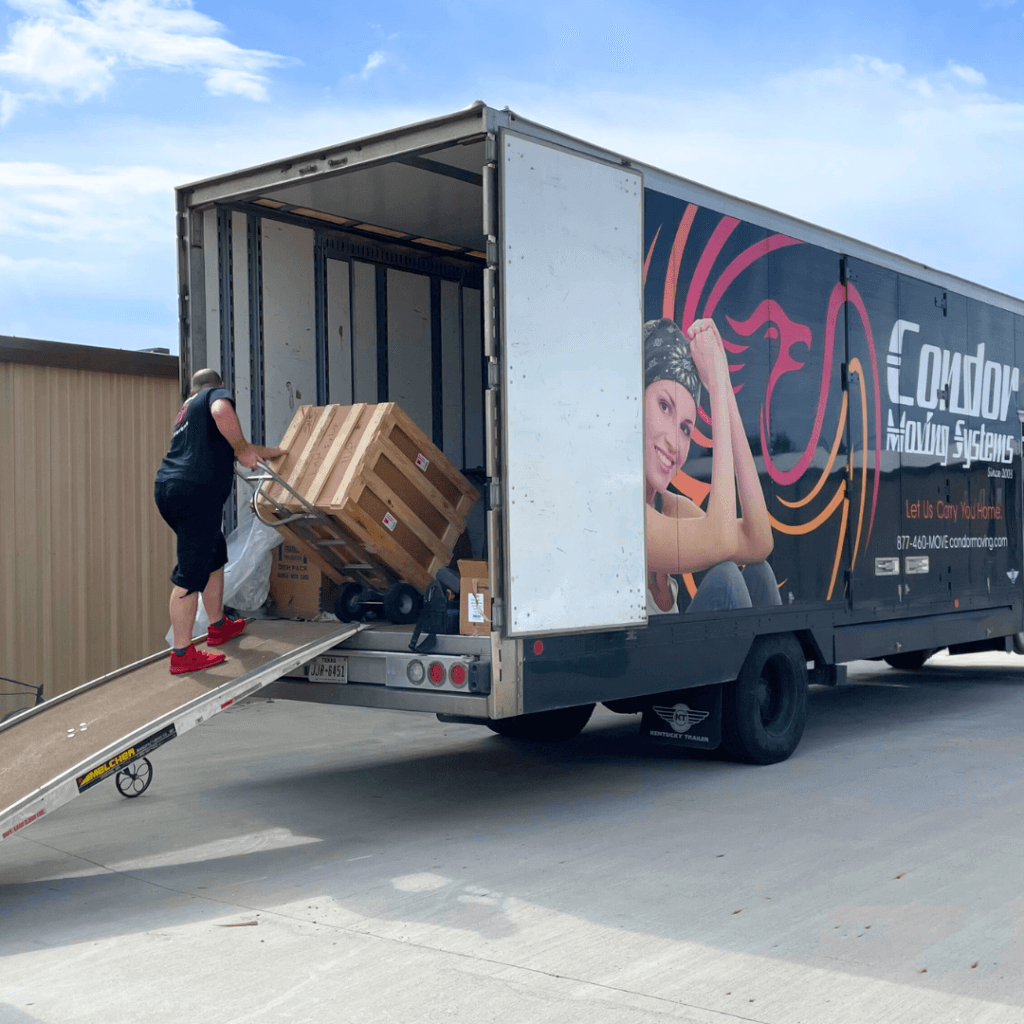Moving after a hurricane presents unique challenges that require careful planning and extra precautions. From assessing damage to navigating flooded roads, there are several factors to consider before starting your relocation. With safety as the top priority, it’s essential to approach each step thoughtfully and be prepared for unexpected obstacles. These ten tips will guide you through the process, helping you protect your belongings, coordinate with professional movers, and make a safe, efficient transition to your new home or temporary location, even in the aftermath of a storm. Taking the time to plan ahead will ensure a smoother move and help you get back on your feet more quickly.

1. Assess the Damage and Prioritize Safety
Before you begin the moving process, take time to thoroughly assess any damage to your home or property. Inspect the building for structural issues, water damage, or electrical hazards, and check for any safety concerns like exposed wiring or unstable areas. If there is significant damage, consult with a professional inspector to ensure the property is safe to enter. Prioritizing safety in the aftermath of a hurricane will help protect both your family and your belongings as you prepare to move.
2. Check Local Road Conditions and Access Routes
After a hurricane, many roads may be flooded, damaged, or closed, making travel hazardous. Before starting your move, check local news updates and traffic reports to confirm that your intended route is safe and accessible. If possible, plan alternative routes in case of unexpected closures or detours. Being aware of road conditions in advance will help you avoid delays and ensure a safer journey to your new location.
3. Document Damaged Belongings for Insurance Claims
As you prepare to move, take photos and make a list of any belongings that were damaged by the hurricane. This documentation will be essential if you need to file insurance claims for repairs or replacements. Be sure to keep records of any items that may require special handling or disposal due to water or mold damage. Having thorough documentation will streamline the claims process and help you recover costs for lost or damaged items
4. Pack an Essentials Bag with Emergency Supplies
After a hurricane, it’s wise to have an essentials bag on hand with items you might need immediately. Include things like water, non-perishable food, flashlights, first-aid supplies, important documents, and any necessary medications. This bag will be especially useful if you encounter delays or need emergency supplies during the move. Preparing an essentials bag ensures you have the basics covered while you transition to your new location.

5. Hire Pro Movers Experienced with Post-Disaster Moves
Moving after a hurricane requires special handling, so consider hiring professional movers who are experienced with post-disaster relocations. They will have the knowledge and equipment needed to navigate challenging conditions, handle water-damaged items, and manage any additional safety concerns. Professional movers can also help speed up the process, allowing you to focus on other aspects of recovery. Working with experts will ensure a safer, more efficient move in the aftermath of a storm.
6. Plan for Temporary Storage if Needed
If your new home isn’t immediately ready, consider renting a temporary storage unit for your belongings. This can be especially helpful if you’re dealing with delays due to hurricane damage. Choose a storage facility with climate control to protect your items from humidity and further damage, giving you peace of mind while you focus on settling into a safe, functional space.
7. Inspect and Clean Items for Mold and Water Damage
After a hurricane, items exposed to moisture can quickly develop mold, which poses health risks and can spread to other belongings. Before packing, inspect furniture, clothing, and other items for signs of mold or water damage. Clean and dry affected items thoroughly, or dispose of those that cannot be salvaged. Taking this step helps protect your health and prevents mold from spreading to your new location.
8. Dispose of Hazardous Materials Safely
After a hurricane, certain household items like cleaning supplies, paints, or batteries may become hazardous if they’ve been exposed to floodwaters. Carefully inspect these items and follow local guidelines for safe disposal. Do not pack any damaged or potentially hazardous materials, as they can pose risks during transit. Proper disposal ensures a safer move and reduces the risk of contaminating your new home.
9. Contact Utility Companies for Service Updates
Reach out to utility providers to ensure services like electricity, water, and gas are available and safe at your new location. After a hurricane, there may be interruptions or delays in service restoration. Confirming these details ahead of time helps you plan accordingly and avoid arriving at a home without essential services.
10. Use Waterproof Containers for Important Items
When packing up after a hurricane, protect important items by using waterproof containers or heavy-duty plastic bins. This is especially important for documents, electronics, and valuable items that could be further damaged by moisture. Even if the weather improves, residual dampness in the area can still pose a risk to your belongings. Using waterproof containers will add an extra layer of security and help keep your most important items safe during the move.

Moving after a hurricane requires extra planning, patience, and attention to safety. By following these ten tips, you can navigate the unique challenges that come with a post-storm move, from securing your belongings to ensuring that your new home is ready and safe. With the right precautions and a clear plan, you’ll be better prepared to handle any unexpected obstacles and make a smooth transition to your new location. Taking these steps will help you move forward with confidence as you start a fresh chapter, even in the wake of a storm. If you’re looking for movers to assist you on your move, we encourage you to contact Condor Moving Systems for a free moving quote.


